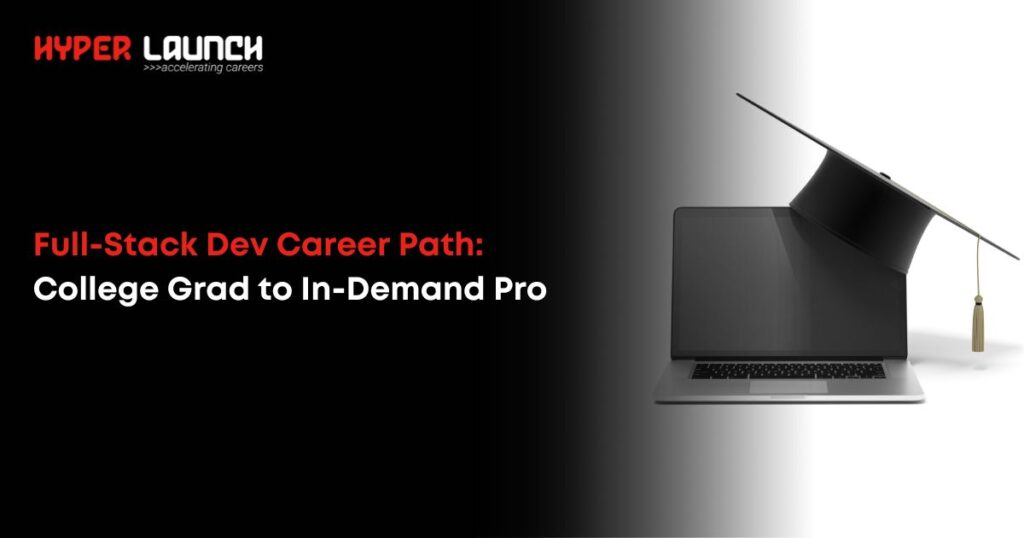In today’s ever-changing world of technology, being a full stack developer holds a significant place. These web experts are like skilled navigators, easily handling both front-end and back-end development tasks. They’re crucial for building and keeping web apps running smoothly. Whether you’re eyeing a career as a full stack developer or aiming to climb higher in the field, grasping the core responsibilities, mastering essential technologies, and crafting strategies for skill development are key. Whether aspiring for a full stack developer career or advancement, understanding core duties, mastering key technologies, and honing skill development strategies are essential.
Understanding the Full Stack Developer Role
Picture a full stack developer as a bridge between the user-facing front-end and the behind-the-scenes back-end. They craft user interfaces, implement server-side logic, handle databases, and ensure the smooth operation of web apps. This demands a broad skill set covering programming languages, front-end and back-end frameworks, database management, and the full stack developer career path.
The Essential Tech Stack for Full Stack Developers
To excel in the full stack developer career path, familiarity with a diverse set of technologies is essential. On the front-end side, frameworks like React.js, Angular, or Vue.js are commonly used for building interactive user interfaces. For back-end development, languages such as Node.js, Python, or Java provide the foundation for server-side logic implementation. Database management is another critical aspect, with options ranging from traditional relational databases like MySQL or PostgreSQL to NoSQL databases like MongoDB.
Read Our Blog: Skills to Become a Full Stack Developer
In addition to programming languages and frameworks, proficiency in web development tools and version control systems is crucial for efficient development workflows. Tools like Git for version control, Docker for containerization, and IDEs (Integrated Development Environments) such as Visual Studio Code or IntelliJ IDEA streamline the development process and enhance productivity.
Gaining the Necessary Skills and Experience
While a formal education in computer science or a related field can provide a solid foundation, many successful full-stack developers are self-taught. Online courses, coding boot camps, and tutorials offer accessible avenues for acquiring relevant skills and knowledge for the full stack developer career path. However, practical experience is equally important. Building a portfolio of projects that showcase your abilities, participating in internships, and contributing to open-source projects are effective ways to gain hands-on experience and demonstrate your expertise to potential employers.
Continuous learning is key in the fast-paced world of full-stack development. Keeping abreast of emerging technologies, exploring new frameworks and tools, and honing your problem-solving abilities are essential for staying competitive in the field.
Building Your Professional Network and Reputation
Networking plays a crucial role in advancing your career as a full-stack developer. Joining online communities, attending tech meetups and conferences, and participating in hackathons provide opportunities to connect with industry professionals, share knowledge, and stay updated on the latest trends and developments.
Platforms like LinkedIn offer a powerful tool for building your professional network and establishing your presence within the industry. Actively engaging with peers, sharing insights, and showcasing your projects and achievements can help you attract opportunities and expand your professional circle.
Contributing to open-source projects is another effective way to build your reputation and demonstrate your skills to potential employers. By collaborating with other developers on meaningful projects, you not only contribute to the community but also gain valuable experience and visibility in the industry, paving the way for your full stack developer career path.
Landing Your First Full Stack Developer Role
When embarking on your job search as a full-stack developer, it’s essential to tailor your resume and portfolio to highlight your relevant skills and experiences in the full stack developer career path. Showcase your projects, emphasising your contributions and the technologies you’ve used. Be prepared to discuss your thought process, problem-solving approach, and the challenges you’ve overcome during interviews.
Read Our Blog: Full Stack Development Project Ideas for Beginners
Researching salary expectations in your desired location and industry can help you negotiate fair compensation when discussing job offers. Additionally, consider factors such as company culture, growth opportunities, and the potential for skill development and career advancement when evaluating job opportunities.
Conclusion
As technology continues to evolve, the demand for skilled full-stack developers is expected to remain high. By mastering essential technologies, continuously improving your skills, and actively participating in the tech community, you can position yourself for long-term success in this dynamic field. Joining the Hyper Launch full stack developer course can provide you with structured learning and guidance to help you excel.
Embrace lifelong learning, seek out mentorship opportunities, and remain adaptable in the face of evolving industry trends. Cultivate a strong professional network, establish your presence within the industry, and seize opportunities for career growth and advancement.
With dedication, perseverance, and a commitment to excellence, you can thrive as a full-stack developer, contributing to innovative projects and shaping the future of web development.

